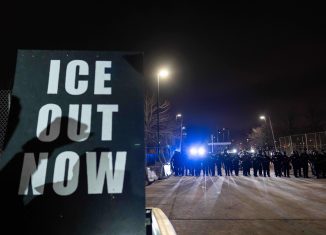
Senate Majority Leader Mitch McConnell spoke with Brian Kilmeade about Senator Chuck Schumer accusing him of being unfair in setting the parameters of impeachment in the Senate. McConnell said Schumer made the exact opposite argument during President Clinton’s impeachment. McConnell explained if the Senate goes down the road of having a long trial with democrats wanting to hear from witnesses such as Mick Mulvaney, John Bolton and Secretary of State Mike Pompeo, then the republicans will want to have the whistleblower and Hunter Biden testify leading to a mutually destructive episode that will go on for a long time.
McConnell responded to House Judiciary Chairman Jerry Nadler asserting he is violating his oath and pledge to do impartial justice in a Senate impeachment trial, saying it was a ridiculous argument because impeachment is a political process that is not like a jury proceeding.
When asked if he thinks Jeff Sessions is the right candidate to run against Democrat Senator Doug Jones in Alabama, McConnell said it is up to the people of Alabama to decide on the nominee. He said, “We’re not going to nominate somebody like Roy Moore again who managed to do what you would think would be impossible, which is to elect a Democrat in deep red Alabama.”
On the USMCA, McConnell said there are too many things going on and there are rules that must be followed on how to handle trade deals.
Plus, Senator McConnell on why he is worried about students on college campuses not wanting to listen to opposing points of view, filling a potential Supreme Court nomination in 2020 and how his relationship with President Trump has evolved to the point where President Trump wrote the forward for the paperback release of his book “The Long Game: A Memoir”.
Watch here:
Click here to order “The Long Game: A Memoir”
Brian Kilmeade:
Joining me right now is the author of a great book now out in paperback. Did you know him as one of the most powerful people in Washington, which means the country? He’s from Kentucky. How do I know that? Because he’s the senator there. He’s Senate Senator Mitch McConnell, the majority leader and author of The Long Game: A Memoir with a new foreword and a new afterword, the foreword from the President of the United States. Senator Mitch McConnell, welcome back.
Mitch McConnell:
Good morning.
Brian Kilmeade:
Hey, Senator, I loved your book the first time — when I read it the first time because you talked about baseball and how that set you up for success later in life and steeled you for tough times and still plays an important role in your life. I love in this book, the President of the United States, who you barely knew before he ran, had wrote the foreword. How tough was it to book that?
Mitch McConnell:
Well, the president and I have had a great collaborative effort on the judges. I thought people were entitled to know what happened. My book came out in 2016 before the president elected. And I felt like the collaboration that we’ve had on change in the federal courts has been the longest lasting impact we’ve had. And he agreed. And so he put — wrote a foreword to my original memoir. And I wrote an afterword about the judges that covers, starting with the death of Justice Scalia in 2016 and the decision not to fill the vacancy in the middle of the election right up until the date of publication. And to bring you up to date today with the district 55th Circuit judge, last week, Brian — Obama did 55 in eight years. The president and I have done 50 three years. So we are changing the court forever.
Brian Kilmeade:
You are. And it seems like there’s a mutual respect society between you, even know you’ve had dramatically different upbringings and careers. And I remember early on you were in Kentucky, you went home and you were taking some questions, it seems like. You would know the scene better. And here’s what you said in August 2017.
Mitch McConnell:
Part of the reason I think that the storyline is that we haven’t done this is because in part of the president and others have sent these early timelines about things need to be done about a certain point. Now, our new president, of course, has not been in a lot of work before and I think had excessive expectations about how quickly things happen in the democratic process. Part of the reason I think people feel like we’re underperforming is because too many artificial deadlines unrelated to the reality of the complexity of legislating may not get fully understood.
Brian Kilmeade:
So he kind of took that personal. What was that like when he blasted back at you and how did you guys kind of get over it?
Mitch McConnell:
Well, you know, he was getting used to his job and we were getting used to each other. And after that, we did comprehensive tax reform. We started down the road. All the judges that I just gave you a summary of. We did 16 repeals of onerous Obama era regulations. We enjoyed working together.
Brian Kilmeade:
How would you grade his performance? You were almost full of full term three years now. How has he done?
Mitch McConnell:
He’s done terrifically and he’s about to sign this week, a bill that has all of his priorities in it. A big government funding bill that has money for the wall. Money for space force, which is one of his top priorities, continue the build up of the Defense Department in this big negotiation here at the end. And even with the House impeachment going on, the president managed to get out of the speaker because obviously we have to deal with her because she’s in the majority over there. Essentially, every one of his top priorities. So the president’s doing an actual job.
Brian Kilmeade:
And we’re talking to Senator Mitch McConnell. His book is out in paperback. I really recommend you get it. It’s called The Long Game:
A Memoir. And he talks about in the afterword his days with Justice Scalia, what he meant in his passing, among other things and the judges and success he had. Senator, when you look at what’s going on right now, the one thing I would add before I closed the door on the budget, you go over one trillion dollars and the deficit’s going up. Do you feel as though you’re losing that conservative label of being fiscally conservative and instead of just politically conservative because the deficit is going up with you running the Senate and the president running the White House, both as Republican conservatives?
Mitch McConnell:
Well, it’s a problem when you don’t control the entire government. We have to deal with the Democrats. They’re there. They’re in the majority. And anytime you make an agreement with a Democrat, you end up spending more than you want to. On the other hand, the president’s priorities, as I said earlier, he got them all. It was a very skillful negotiation from a great negotiator.
Brian Kilmeade:
Here is what Chuck Schumer says. You big thing today is the rules are going to be set up in the House and the vote for impeachment is likely to be Wednesday, could be pushed to Thursday. It’s going to be on your lap. And Chuck Schumer is making it clear he’s not happy by the way, things are going.
Chuck Schumer:
I haven’t seen a single good argument about why these witnesses shouldn’t testify. I told Leader McConnell I was ready to discuss trial rules. Instead of talking to me, he spoke publicly about what a trial may look like and said he was taking his cues from the White House. It was very partisan, very slanted. Very unfair.
Brian Kilmeade:
Were you being unfair, Senator?
Mitch McConnell:
Well, Schumer made exactly the opposite argument 20 years ago during the Clinton impeachment. So he’s not being consistent at all. Look, under the rules, of impeachment that we have in the Senate we’ll have to take the matter up. We’ll listen to the arguments that the House managers appointed by Pelosi make. We’ll listen to the response of the president’s lawyers. We’ll have a period of written questions and then the Senate will have to make a decision. Do we know enough? Have we learned enough after listening to all this to go on and vote on the two very weak articles of impeachment? Or do we want to have a show trial in which both sides try to embarrass the other and put on a, you know, an embarrassing scene, frankly, for the American people? Obviously, I think we’ve heard enough. After we’ve heard the arguments, we ought to vote and move on.
Brian Kilmeade:
Well, he wants to see Mick Mulvaney, Secretary of State Mike Pompeo, John Bolton among the three. Among those, he wants to see his witnesses. Will he get to hear from them?
Mitch McConnell:
Well, if we go down in the witness path, we’re going to want the whistleblower. We’re going to want Hunter. You can see here that this is the kind of mutual assured destruction episode that will go on for a long time. We’d rather — we know how it’s going to end. The president’s not going to be removed from office. The only issue is how long do we want to take to get a final decision. I think what we’ve heard enough, we’re going to listen to arguments. But my view is it’s time to vote and move on and get back to get back to the business the American people sent us all here to do.
Brian Kilmeade:
The president said on Friday, I want a trial. I want to get my case out there. And now it seems as though he might have backed off that a little. Have you spoken to him? Would he go along with your suggestion not to have a long trial?
Mitch McConnell:
Yeah, I have spoken to him and we’ve talked about this. And basically, the last position he’s taken publicly is he’s okay either away, either way we go. My own view is he can speak for himself, my view is the American people have been up to this. They know what they think about it and it’s time to end it and move on.
Brian Kilmeade:
Senator Mitch McConnell, our guest, Senator, Tom Barraso said yesterday that we don’t have 51 votes for anything and there are many and difficult races coming up and they’re worried about that vote — we’ll get to them in a second. Is it true that you guys are not on the same page? Because we know Senator Lindsey Graham came out and said it’s done. I’ve already made up my mind. This is a joke. This is a hoax. Forget it. So what about the rest of the Republicans in the Senate?
Mitch McConnell:
Well, we’ll find out when the matter gets here. Well, what we know for sure is the president is not going to be removed from office. There are going to be 67 votes to vacate this presidency. The American people are making a decision this very year about the president’s future, and we should let them make that decision, not us.
Brian Kilmeade:
True. Mitch McConnell, you know, if you’re going to stay the majority leader, you’re going to have to have success in Colorado with Cory Gardner. Going to have success with Thom Tillis keeping his seat. Susan Collins in Maine. Those are three that stand out. And one that could probably come your way is Alabama, if you have the right candidate. First off, do you believe Jeff Sessions is the right candidate to run against Doug Jones?
Mitch McConnell:
I’m going to people of Alabama decide who the nominee ought to be, but clearly we want to get that seat back. We’re not going to nominate somebody like Roy Moore again, who managed to do what you would think would be impossible, which is to elect a Democrat in deep red Alabama. That’s not going to happen. The Republicans in Alabama will decide who the nominee is and we’ll get behind whoever that person is.
Brian Kilmeade:
Have you spoken to Susan Collins? Because I know it’s a tough vote for her in her state of Maine.
Mitch McConnell:
Well, I’m talking to our members all the time, every week. And we do talk about impeachment. But we’ve got a lot of other business for the American people, including wrapping up the defense authorization bill this week and the president’s priorities in —
Brian Kilmeade:
The USMCA is going to pass through the House this week. Why are you going to wait till after impeachment is done to pass it? Nancy Pelosi says we’ve done things on the same day before. Why not this?
Mitch McConnell:
Yeah. This is too complicated. There are rules that tell us how to handle trade deals. And so we can’t possibly do that this week. We have too many other things going on. And we’ll take it up just as soon as we get through the trial in January.
Brian Kilmeade:
So you don’t feel as though you could do it? It’s not a matter of saying, hey, Nancy Pelosi, we’re not going to give you this victory and let the world know that you can impeach my president, at the same time, pass a trade bill.
Mitch McConnell:
We just simply can’t sandwich it in this work. We have too many other things to do. The trade bill will pass when it gets to the Senate. It’s going to be a great victory for the president. Much to brag about when it happens after the first of the year.
Brian Kilmeade:
I want you to hear what Jerry Nadler, Congressman Nadler said about you. Cut 35.
Jerry Nadler:
The Constitution prescribes a special oath for senators when they sit as the trial and impeachment. They have to pledge to do impartial justice. And here you have the majority leader in the Senate, in effect the foreman of the jury, saying he’s going to work hand in glove with the defense attorney. And that’s a violation of the oath that they’re about to take. And it’s a complete subversion of the constitutional scheme.
Brian Kilmeade:
Your reaction, Senator?
Mitch McConnell:
That’s ridiculous argument, I’m not impartial about this. I’m opposed to what the House is doing — this is a political process. It’s not like a jury trial. And so the chief justice may be in the chair, but there’s nothing about impeachment that’s like a judicial proceeding. It’s a political decision. They made a political decision to impeach the president. And the House, presumably later this week will make a similar decision not to remove him from office. And then we’ll get back finally to the American people’s business.
Brian Kilmeade:
So you’re going to forge ahead. If there’s a Supreme Court justice position open this year, are you going to look to fill it?
Mitch McConnell:
We would. Yes.
Brian Kilmeade:
What about people say that’s hypocrisy because you said in the last year of an administration you shouldn’t fill that spot. Hence, Merrick Garland didn’t get a vote.
Mitch McConnell:
Yeah. What I said was — people have faulty memories — what I said was you had to go back to the 1880’s to find the last time a Supreme Court vacancy occurred in the middle of a presidential election was confirmed by the Senate of a different party, of a different party than the president. We have a Senate of the same party as the president. And if a vacancy were to occur, of course, we would fil it.
Brian Kilmeade:
Senator, what I thought was so interesting about your story is you talked about like how you became the person you became, a lot had to do with sports. Could you talk about that, how that laid the groundwork for your success?
Mitch McConnell:
Well, you know, I think kids playing baseball, you learn you learn the heartache at of defeat and the exhilaration of victory. And you also learn that there’s another game the next day. I mean, baseball is an endurance, 162 games a year and so is life. And so it’s an early lesson for the youngsters that, you know, we learn to deal with setbacks and move forward. The biggest setback I had early in my life was contracting polio when I was 2 years old. My mother helped me through that process and with great discipline and love, and, you know, I was fortunate to have great parents. Some youngsters are not so lucky and have, you know, more challenges. But I always tell young people, Brian, the only way to fail in America is to give up. There’s always another opportunity right around the corner when you run into these stone walls or you think of crush your dreams, just take a different path and you’ll get there.
Brian Kilmeade:
You worry about this country that we’ve kind of lost that wheel or we want to blame the government, blame the president, whoever it is, for failings in life?
Mitch McConnell:
I’m a little worried. I’ll tell you what I’m worried about the most is what seems to be pervasive on college campuses these days is people don’t want to hear anything they might disagree with. Where did that start? America’s been in the midst of robust debates for over two hundred years. And one of our secrets are our success is we’re at least willing to listen to the arguments on both sides before going forward. The intolerance of other points of view, I do think is a disturbing trend and I think we need to push back against that.
Brian Kilmeade:
And lastly, something else has wrapped up in the spending bill, and that is a guy in a tobacco state cracking down on cigarettes and vaping. What is in this? What are you doing to attack this? Because it’s got a lot of parents concerned. I saw a stat that one in three high schoolers is using some type of tobacco product.
Mitch McConnell:
Yeah. Well, my bill, along with Senator Tim Kaine of Virginia, raises the age for purchasing tobacco to 21. It doesn’t solve every problem, but it makes it harder for the 18-year old in the high schools to purchase tobacco products legally and pass them on to the youngsters. The public health people think it’s the single biggest step we could take and we’ve taken it. My provision is in the bill. The president will sign later in the week.
Brian Kilmeade:
Senator, you want another six years at this. A lot of people who’s accomplished what you’ve accomplished would want to kick back and relax. Why do you want another six?
Mitch McConnell:
Well, I think, you know, I think we’re making great strides to the American people. I’ve enjoyed my collaboration with the president and the opportunity to advance the ball in the right of center world. We have more challenges now with a Democratic House but as I indicated, that bill that the president will receive later this week has every single one of his top priorities. Every one of them.
Brian Kilmeade:
No wonder he likes you when he wrote the foreword. He owes you. Senator Mitch McConnell pick up his book, The Long Game:
A Memoir. Whether you’re Republican or Democrat, you’ll like it. It’s out on paperback. Senator, have a great holiday. Thanks for the quality time.
Mitch McConnell:
Thank you, Brian.
Brian Kilmeade:
You got it.







